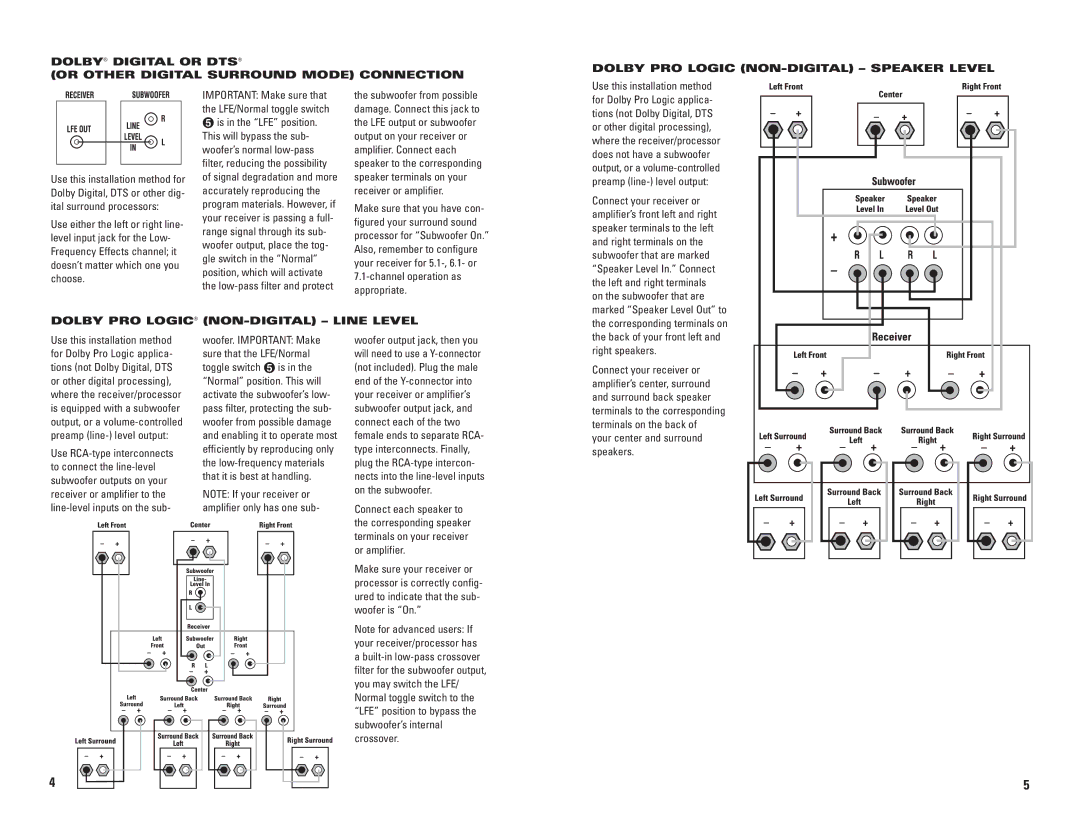L8400P specifications
The JBL L8400P represents a significant addition to the world of high-performance subwoofers, offering an exceptional combination of power, precision, and versatility. Designed by the renowned audio equipment manufacturer JBL, the L8400P delivers a robust low-frequency performance that enhances any audio setup, making it ideal for home theaters, music enthusiasts, and professional audio applications.One of the standout features of the L8400P is its impressive power output. With a powerful 300-watt RMS amplifier coupled with a peak output of up to 600 watts, this subwoofer is capable of delivering deep, impactful bass that can fill any room. This power allows it to reproduce low frequencies with authority, enhancing the overall sound experience, whether it's booming cinematic explosions or subtle musical notes.
The L8400P utilizes advanced technologies that contribute to its exemplary performance. It features JBL's patented PolyPlas cone technology, which is designed to provide a lightweight yet stiff diaphragm. This construction results in reduced distortion and improved clarity, ensuring that the subwoofer can handle dynamic audio content with ease. Additionally, the progressive spider design allows for greater excursion and control, which translates to superior bass response.
In terms of design, the JBL L8400P is both stylish and functional. It boasts a robust enclosure that is engineered to minimize resonance, thereby enhancing the overall sound quality. The sleek finish and modern look make it a fitting addition to any home audio setup, blending seamlessly with various interior designs.
Connectivity options are another strong point for the L8400P. It features both line-level and speaker-level inputs, allowing it to integrate easily with a wide range of audio systems, including receivers and amplifiers. The subwoofer also comes equipped with adjustable phase and crossover controls, enabling users to fine-tune the output to match their specific listening environments.
Finally, the JBL L8400P is designed with user convenience in mind. It includes a range of settings to optimize performance based on the room acoustics, making it adaptable for different spaces. Whether used for music, movies, or gaming, this subwoofer promises to elevate the auditory experience, making it a valuable addition for those seeking deep, resonant bass in their audio systems. With its fusion of technology, performance, and aesthetic appeal, the JBL L8400P stands out as a top choice for audiophiles and casual listeners alike.

